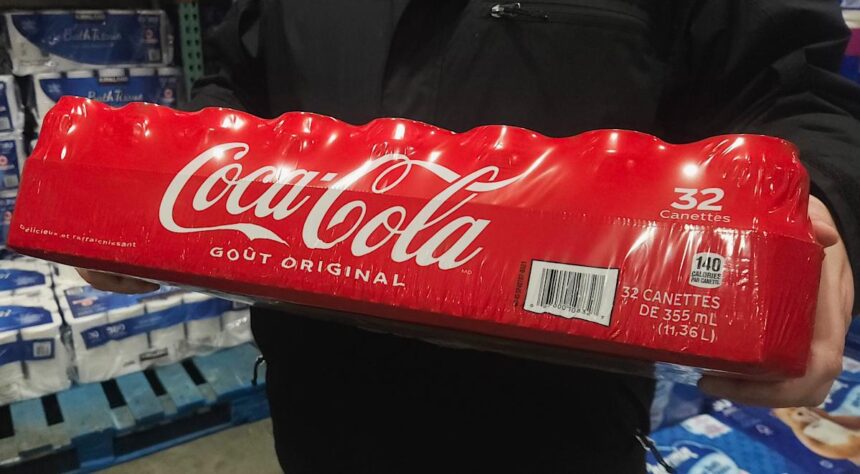The grocery store battle for value-conscious Canadians has entered a new phase. While inflation has officially cooled from its 2022 peak, many Canadian households continue feeling the pinch at checkout – prompting major food manufacturers to significantly alter their market approach.
“The era of easily passing on price increases to consumers is effectively over,” explained Sylvain Charlebois, Director of the Agri-Food Analytics Lab at Dalhousie University. “Food companies are now in a high-stakes game of perception, trying to convince shoppers they offer value without sacrificing their own margins.”
This shift became evident during recent quarterly earnings calls where executives at companies like Kraft Heinz, General Mills, and Loblaw repeatedly emphasized “value” as their strategic focus. But a closer examination reveals a more nuanced reality beneath these consumer-friendly messages.
Take Loblaw, Canada’s largest grocery retailer, which has seen eight consecutive quarters of profit growth while simultaneously promoting its discount banners like No Frills. The company reported a 9.1% increase in profit for Q1 2024, reaching $459 million, while continuing to blame supplier costs for price increases that outpace inflation.
For big food manufacturers, the playbook has evolved beyond straightforward price hikes. Many are implementing what industry insiders call “shrinkflation” or “skimpflation” – reducing product sizes or reformulating with cheaper ingredients while maintaining shelf prices.
PepsiCo CFO Hugh Johnston acknowledged this reality on their recent earnings call: “We’re focusing on what we call ‘revenue management’ rather than simple price increases.” This carefully worded corporate speak often translates to offering smaller package sizes at slightly lower price points – creating the impression of value while actually increasing the per-gram cost.
Statistics Canada data shows grocery prices have risen 21.4% since January 2020, far outpacing general inflation. The average Canadian household now spends approximately $1,260 more annually on groceries than they did pre-pandemic.
This sustained pressure has reshaped consumer behavior. A recent Angus Reid survey found 76% of Canadians are actively switching to lower-cost brands, while 68% report cutting back on meat purchases.
“We’re seeing a fundamental shift in shopping patterns,” noted Heather Wardle, consumer behavior analyst at RBC Capital Markets. “Brand loyalty is being replaced by value-hunting, with consumers becoming increasingly sophisticated about comparing unit prices and identifying shrinkflation.”
This changing landscape has created both challenges and opportunities for major food companies. Kraft Heinz CEO Carlos Abrams-Rivera recently highlighted their strategy of offering “price pack architecture” – corporate jargon for creating various product sizes to hit different price points.
“Our research shows Canadian consumers now prefer smaller package sizes with lower absolute prices, even if the per-unit cost is higher,” Abrams-Rivera explained. “It’s about meeting psychological price thresholds rather than delivering actual savings.”
The strategy appears to be working. Despite volume declines, Kraft Heinz reported a 1.9% organic net sales growth in their latest quarter, driven largely by pricing strategies.
For discount grocery chains, the prolonged inflation has created unexpected growth opportunities. Loblaw’s discount division, including No Frills and Maxi, has expanded its market share by approximately 2.7 percentage points since 2022, according to retail analytics firm NielsenIQ.
Metro and Empire (parent company of Sobeys) have similarly increased investment in their respective discount banners, Food Basics and FreshCo. Empire CEO Michael Medline noted in their latest earnings call that discount format stores now account for nearly 45% of their total grocery sales, up from 35% pre-pandemic.
The competition for value-conscious shoppers has also accelerated private label growth. Loblaw’s President’s Choice and No Name brands saw double-digit growth last quarter, while Metro reported its private labels now represent 24% of total food sales – an all-time high.
“Private labels used to carry a quality stigma, but that’s disappeared,” explained food marketing consultant Dana McCauley. “Many consumers now perceive store brands as equivalent to national brands but at a 20-30% discount.”
The federal government has attempted to address food inflation concerns through initiatives like the Grocery Code of Conduct, designed to balance power between retailers and suppliers. However, implementation has been slow, with Loblaw notably reluctant to fully commit to the voluntary code.
For everyday Canadians like Toronto resident Melissa Cheng, these corporate strategies and government initiatives feel disconnected from daily reality. “I don’t care about their profit margins or fancy packaging strategies,” said Cheng, a mother of two. “I just know I’m paying $7 for butter that cost $4 three years ago, and my salary hasn’t gone up by that much.”
Looking ahead, food companies face a delicate balancing act. Bank of Canada Governor Tiff Macklem recently signaled potential interest rate cuts in 2024, which could eventually ease some inflationary pressures. However, ongoing supply chain disruptions and climate-related agricultural challenges suggest grocery prices won’t return to pre-pandemic levels anytime soon.
“The companies that will thrive are those that genuinely understand value rather than just using it as a marketing buzzword,” predicted Charlebois. “Canadians have become inflation-weary but also inflation-wise. They can spot the difference between actual value and clever packaging.”
As this new reality settles in, the grocery aisle has become a sophisticated battleground where perception and reality blend in increasingly complex ways. For big food companies, convincing Canadians they’re on the consumer’s side while protecting profit margins may prove to be their most challenging recipe yet.






